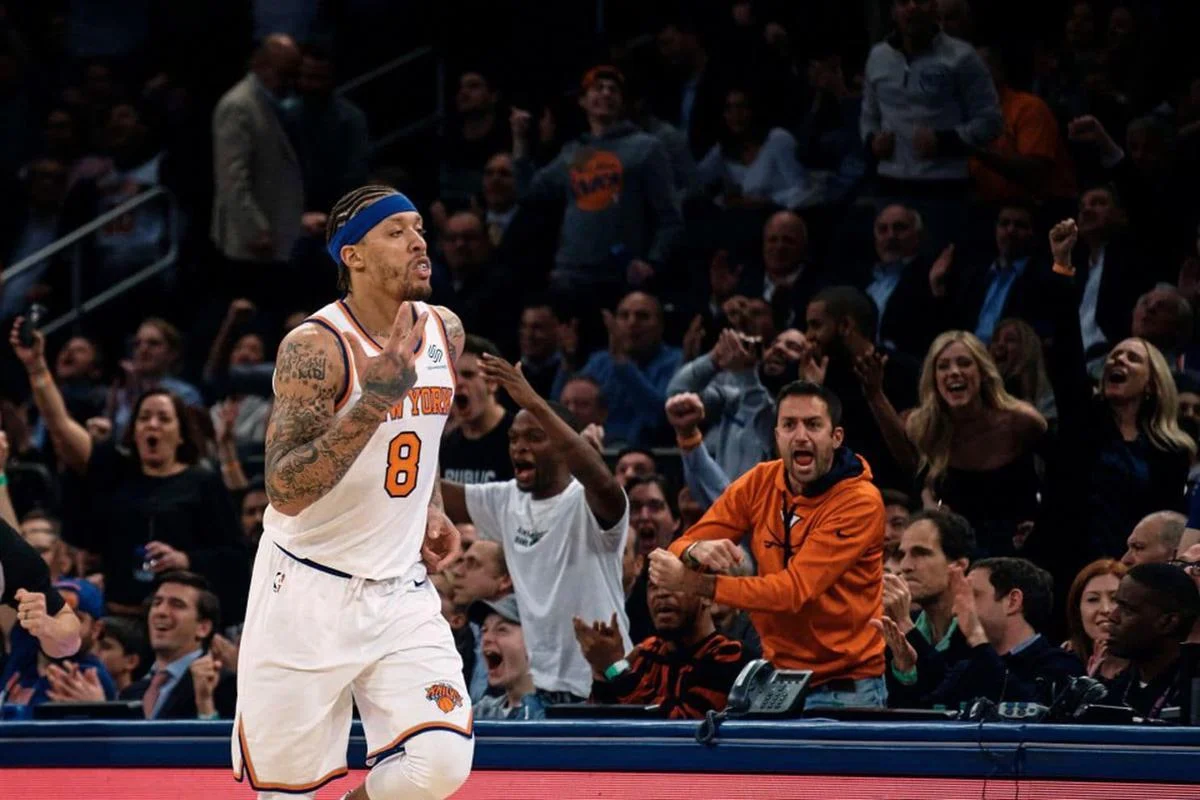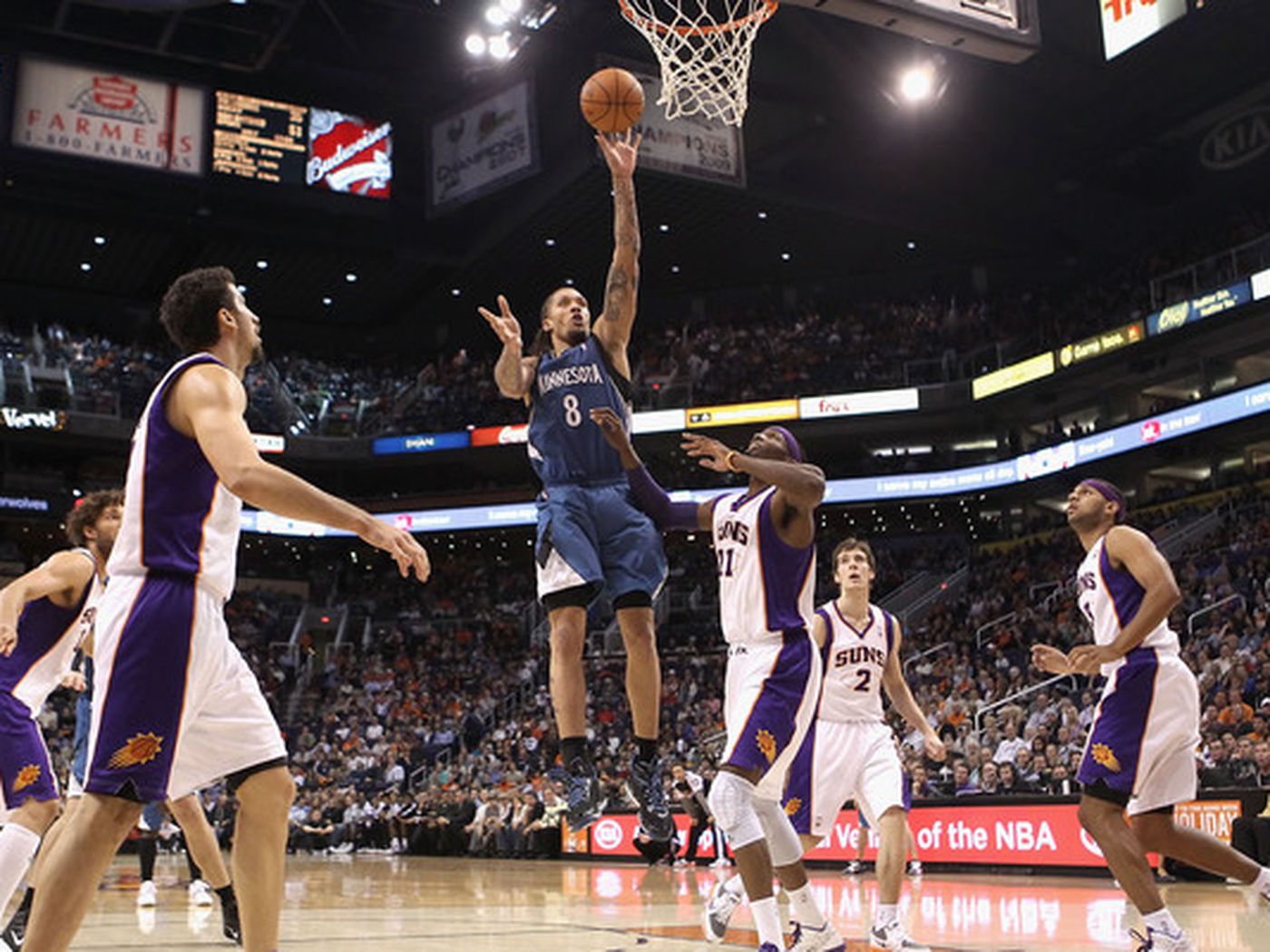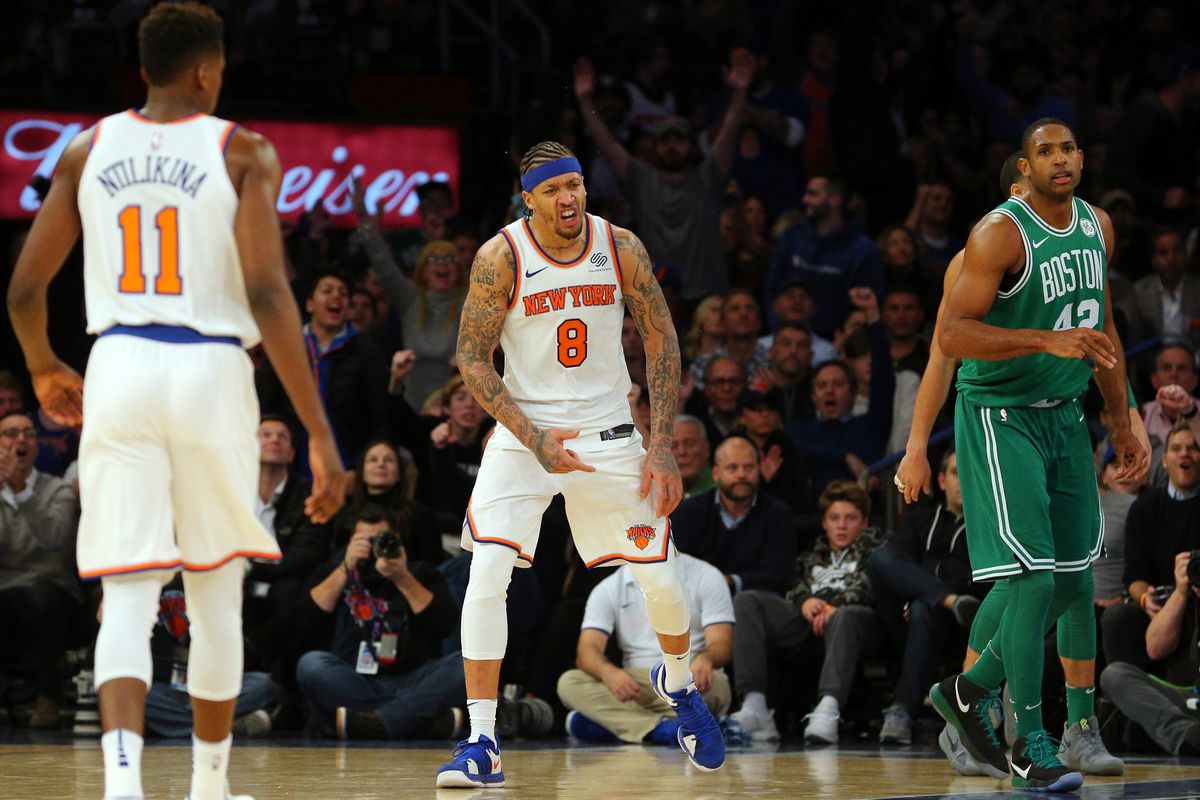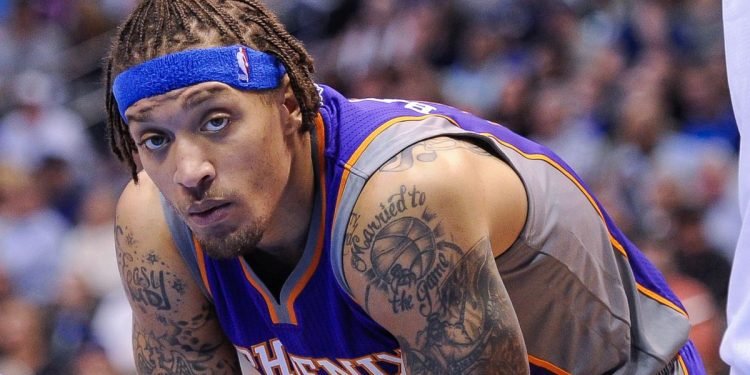In the high-stakes world of the NBA, where every draft pick is a gamble, Michael Beasley’s journey stands out as a tale of unfulfilled potential and the perplexing nature of raw talent. Selected with the No. 2 pick by the Miami Heat in 2008, Beasley was heralded as a generational talent, endowed with an exceptional blend of athleticism, size, and speed.
Despite these attributes, his career trajectory didn’t align with the initial expectations—a narrative that NBA legend Tracy McGrady finds not just disappointing but indicative of a talent that perhaps transcended the league’s parameters.

Tracy McGrady’s Insight: A Perspective of Untapped Potential
Tracy McGrady, an NBA great whose opinions carry weight, recently shed light on Beasley’s intriguing career arc. In a heartfelt Instagram post, McGrady articulated his views on Beasley’s inherent capabilities, stating, “Michael Beasley can hoop, inside, outside. This dude has game. Whatever team I think he’s on, he could be the best player, best scorer. Given the opportunity, he could have averaged 25 in this league, no doubt about it.”
Everything Michael Beasley says is a quotable pic.twitter.com/DpD4jlDaxo
— Bojack Fan Account (@Cam_Unstoppable) May 6, 2024
Such high praise from McGrady underscores a belief that Beasley’s talent was not only real but also, potentially, too vast and varied for the traditional frameworks of NBA team dynamics and strategies. This perspective introduces a provocative question: Can a player be too talented for the league?
Michael Beasley’s Journey Through the League
Beasley’s NBA voyage was marked by brief flashes of brilliance interspersed with frequent transitions. After his initial two seasons with Miami, where he averaged 14.3 points and 5.9 rebounds, he moved to the Minnesota Timberwolves. It was here he notched a career-high 19.2 points in his debut season. However, the stability that often anchors a flourishing career in the league eluded him, leading to stints with five additional teams, including a return to Miami before his exit from the NBA in 2019.

Reflecting on Beasley’s frequent team changes and eventual departure from the league, McGrady shared a personal anecdote that highlighted his admiration and surprise at Beasley’s skill level. “I used to have pickup games at my house and Michael Beasley came there,” McGrady recounted. “I didn’t want to show it then, but I was in awe. I know talent. I know NBA talent. They’re not doing the dude right. He should be in the league.”
Beyond the NBA
Even after his NBA days dimmed, Beasley didn’t hang up his sneakers. His pursuit of basketball excellence continued overseas and in the Big3 League. Now at 35, Beasley still asserts his readiness and capability to compete at the highest levels, a testament to his enduring passion and belief in his skills.

“Dude got elite game and it’s a shame that he wasn’t viewed that way and couldn’t sustain a long, consistent career being on a team,” McGrady lamented. This sentiment not only captures the essence of Beasley’s enigmatic career but also highlights a broader narrative of how professional sports sometimes grapple ineffectively with talents that defy conventional categorization.
A Reflection on Talent and Its Place in Professional Sports
Michael Beasley’s narrative is a compelling study of what happens when extraordinary talent meets the complex machinery of professional leagues. Tracy McGrady’s reflections provide a poignant commentary on the potential mismanagement of such talent, suggesting that sometimes, the sports world might not fully comprehend or appreciate the unique abilities of its athletes.
As Beasley’s journey continues beyond the traditional arenas, his legacy offers valuable insights into the dynamics of talent management, the expectations of professional sports, and the relentless pursuit of athletic fulfillment.










